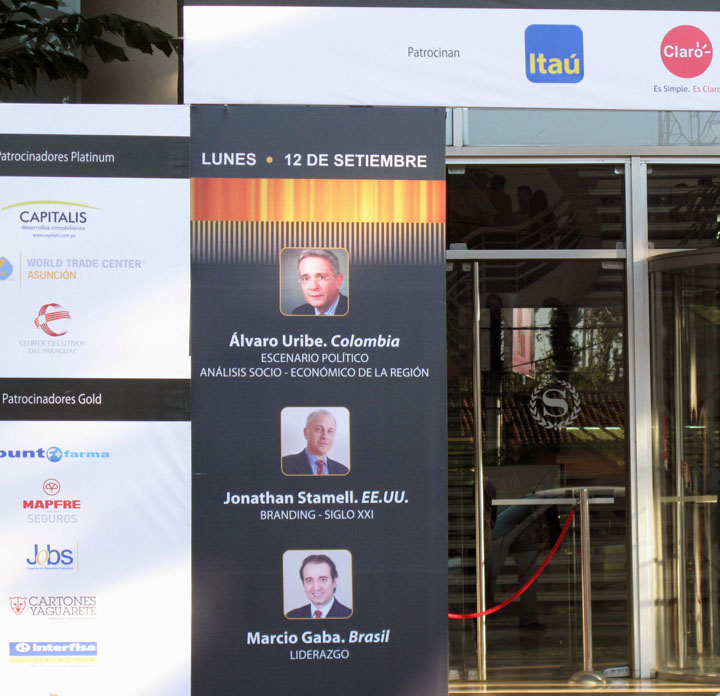This is the sixth in a series on Mistakes Countries Make and How They Can Get It Right
We just began work for a client in our 18th country. While that’s only 7% of all the countries in the world, they add up to over 30% of the top 50 countries in GDP. That’s not a bad sample from which to draw some conclusions about foreign businesses that are marketing products in the U.S. We’ve noticed a number of mistakes and major assumptions that seem to be common among all of the countries that our clients have come from.
One I’ve increasingly noticed is the assumption that Americans are waiting for foreign products with bated breath.
It’s always struck me as unusual that foreign marketers often think that just their presence in this country will create demand. Yet, I’ve been stymied for an explanation as to why this is the case. I think I’ve finally hit on it.
For decades, people in foreign countries have looked up at the U.S. as the bastion of top brands, particularly among consumers. American brands have become a badge for people to show that they travel and have sophisticated and Western tastes. This says nothing about whether they like the U.S. or about their sentiments on American government policies or even whether, more recently, the glow of American brands is wearing off. It’s history.
From the time of the Cold War when a pair of Levis could buy you a hotel and meal in Russia to today when Nike shoes can be found on the feet of people in countries around the world, Coca-Cola at their tables and McDonalds around every corner, American brands have had a pretty good track record of coming into a foreign country and quickly generating sales. True, there have been monumental mistakes like GM trying to sell the Chevy Nova in Latin America, but for the most part, U.S. brands have meant sales.
So, it might stand to reason to someone from outside the U.S. to ask if they buy our brands just because we’re there, won’t we buy their’s just because they’re here? Foreign marketers often miss two key facts about the U.S. that can cause their sales efforts to fail:
1. We’re internally focused.
The U.S. is a big country, no secret there (take a look at the maps in an earlier post, “Mistake #5: Size Matters”) The point is that most Americans don’t think about the rest of the world. With the exception of only two countries, Canada and Mexico, we don’t have countries next to us, just more Americans. Many Americans don’t read the newspaper or watch the news on TV and if they do, it is often likely to be local news or something specific to their interest or vocation. Products from countries like Chile, South Africa, Greece, Vietnam, even those that are successful, just don’t have top-of-mind awareness here. (A rude awakening has been coming to many American companies as they find American cachet diminishing, which means more hard work for us to sell abroad.)
A by-product of internal focus is the notion of “American exceptionalism”. Personally, I find this to be both arrogant and naïve on the part of Americans but it has been aggressively promulgated by one of our political parties, and is associated with blind religious faith that promotes a strong belief that God has chosen America to lead the world. What many Americans forget is that Irving Berlin wrote “God Bless America” as a musical prayer to God to please bless us and this has been turned around so that many people believe it to imply that God does bless America at the exclusion of others.
The U.S. State Department recently announced that more than one-third of Americans now hold a passport. Approximately two-thirds of those have traveled abroad. Whichever number you pick, it means that the vast majority of Americans have never been out of this country. Many of them operate on old beliefs about life elsewhere and simply don’t know how strong the middle class is and how good life can be in other countries. Many of the cheerleaders for American exceptionalism condemn “European socialism” in the same sentence without noting that most Europeans pay far less for health care and education and take more vacation time off from work.
2. We’re less well educated
This is closely related to point number one but consider these facts:
- The U.S. ranks 33rd in student reading performance; 27th in math; and, 22nd in science. (OECD Education at a Glance, 2009)
- The ratio of teachers to students in the U.S. is just below average in pre-primary education when compared to other developed countries; also just below average in post-high school education. We do rank slightly above average at the lower and secondary education levels. (OECD, 2005)
- We rank 9th in national IQ scores but 21 other countries including Mongolia, Estonia and Poland. (We can take pride in tying Latvia and just narrowly beating out Belarus, Malta and the Ukraine.) (Lynn/VAnhanen Study)
- The U.S. ranks 27th in gender equality, a key sign of both education and modernity. (WEF, 2008)
- In the recent WEF 2011/2012 rankings, the U.S. finds itself 13th in higher education and training, 20th in technological readiness, 10th in business sophistication, and 26th in overall education,
- We rank 12th in overall human development (UN Development Program, 2008)
I’ll never forget walking into a neighborhood restaurant in the town of An Giang, Vietnam, near the border of Cambodia, truly a different world, and seeing about 15 patrons riveted to the TV over the bar as they watched clips from the PBS Nightly News hour and then debated an interview with Donald Rumsfeld that they just saw. Can you imagine the reverse in a similar scene in the U.S.? Not likely. It’s a generalization but foreigners tend to know more about the world and even about the U.S. than Americans do.
A Norwegian pharmaceutical executive told me a story about looking for a U.S. marketing partner. While driving along the Delaware River near Trenton, New Jersey, he asked his prospective partner, “Isn’t this near where Washington made his famous crossing?” to which the chief marketing officer replied, “I don’t know. I don’t follow that stuff.” The Norwegian decided that if the man didn’t know the history of his own country that he didn’t want him as a business partner.
So what does this mean for foreign marketers wanting to enter the U.S. and expand their market?
First, don’t assume we know anything about you or your products. Despite our flaws, we live in the most competitive market in the world and largest developed market. You’ll need to educate us and that will take some time.
Second, there are so many competing products in the U.S., both domestic and foreign, that the quality of your products often matters less than the relationships you build with us. We always say, “all things being equal, we’d rather do business with friends.” Become friends with us. Develop relationships. Become a part of our networks and communities and like the first, that doesn’t happen overnight.
Third, find ways to link your values and experiences with ours. What do you have in common with us? Do you play baseball or basketball? Fine, so do we. Talk about it and you’ll connect more often. Are you troubled by high taxes, inconsistent investments or supporting the elderly? These trouble us too. Show us how we’re alike and we’ll be more accepting of you and your products.
Finally and most important, think strategically, not tactically. You need a consistent direction here in order to break through the clutter and to be successful, it should be based on the unmet needs of the U.S. market, not your perceptions of who you think you are (if you’re not convinced, start from the beginning of this article again). A strategy based on market needs will trump tactics every time. A set of ad hoc tactics that are not integrated or tied to a strategy won’t cut it.
And if you’re confused about market needs, adapting or developing your strategy or what kind of tactics work, all you need to do is ask us.
Tags: Americans, Assumptions, Brands, Canada, Change, Chevy Nova, Chile, Coca-Cola, Cold War, Creativity, Due Diligence, Exceptionalism, God Bless America, Governments, Greece, Irving Berlin, Latin America, Levis, Marketing, McDonalds, Media, Mexico, Mistakes, OECD, Outcomes, Positioning, Socialism, South Africa, Strategy, Trade Associations, U.S. Marketplace, UN, Vietnam














